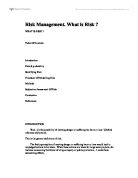What is economic efficiency?
Economic efficiency can be defined as when an economic system is doing well, thus using scarce resources in the most effective way in order to meet the highest level of wants. If resources are being used in the best possible way, then this implies that three different types of efficiency are being achieved - productive efficiency, allocative efficiency and parato efficiency.
Productive efficiency is using the least possible amount of scarce resources to produce a particular product, or producing the maximum quantity at the lowest possible cost. E.g. Providing a bus service with the lowest possible costs, i.e. the cheapest buses, petrol etc. This can be shown on a graph of total cost curves for a firm or industry. Production must take place at the lowest point on the lowest possible cost curve, so the maximum quantity is being produced using the lowest possible cost techniques, as shown below. The curve (cost) rises after the lowest point because as more products are produced, the maximum is being stretched therefore more employees / machines / time are needed, increasing the cost.
Productive efficiency is also said to occur where MC=AC, as shown on the following graph.
Although to achieve full economic efficiency, it is not enough to simply produce goods and services at the lowest possible cost. Allocative efficiency is producing the products that are most wanted by consumers, given their cost of production. For example, two buses, x and y, cost exactly the same amount to produce and run, but bus x gives twice as much satisfaction as bus y. If allocative efficiency is to exist, bus x should be produced and used in preference to bus y. If two methods of transport, train and taxi, yield the same amount of customer satisfaction, but the train costs half as much to produce and run as the taxi, it would be allocatively efficient to provide the train service in preference to the taxi. Allocative efficiency exists when the selling price of a product (P) is the same as the marginal cost of producing that product (MC), i.e. the price paid by the consumer will represent the true economic cost of producing the last unit of the product, this ensures the correct amount of the product is produced, as shown below. (Marginal benefit must always be greater than marginal cost).
Economic efficiency can be defined as when an economic system is doing well, thus using scarce resources in the most effective way in order to meet the highest level of wants. If resources are being used in the best possible way, then this implies that three different types of efficiency are being achieved - productive efficiency, allocative efficiency and parato efficiency.
Productive efficiency is using the least possible amount of scarce resources to produce a particular product, or producing the maximum quantity at the lowest possible cost. E.g. Providing a bus service with the lowest possible costs, i.e. the cheapest buses, petrol etc. This can be shown on a graph of total cost curves for a firm or industry. Production must take place at the lowest point on the lowest possible cost curve, so the maximum quantity is being produced using the lowest possible cost techniques, as shown below. The curve (cost) rises after the lowest point because as more products are produced, the maximum is being stretched therefore more employees / machines / time are needed, increasing the cost.
Productive efficiency is also said to occur where MC=AC, as shown on the following graph.
Although to achieve full economic efficiency, it is not enough to simply produce goods and services at the lowest possible cost. Allocative efficiency is producing the products that are most wanted by consumers, given their cost of production. For example, two buses, x and y, cost exactly the same amount to produce and run, but bus x gives twice as much satisfaction as bus y. If allocative efficiency is to exist, bus x should be produced and used in preference to bus y. If two methods of transport, train and taxi, yield the same amount of customer satisfaction, but the train costs half as much to produce and run as the taxi, it would be allocatively efficient to provide the train service in preference to the taxi. Allocative efficiency exists when the selling price of a product (P) is the same as the marginal cost of producing that product (MC), i.e. the price paid by the consumer will represent the true economic cost of producing the last unit of the product, this ensures the correct amount of the product is produced, as shown below. (Marginal benefit must always be greater than marginal cost).







